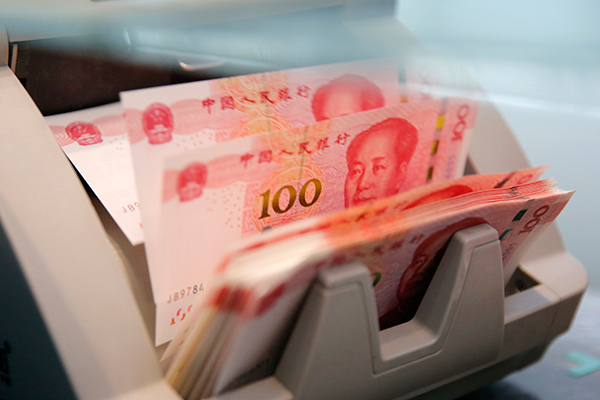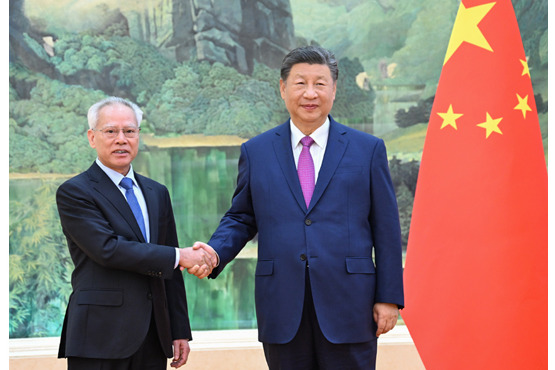Perpetual bond policy will be fine-tuned to aid banking sector


China's central bank will further improve its policy on perpetual bonds, with the first issued by a commercial bank last month to supplement capital and the banking sector's capability to support the real economy, bank Vice-Governor Pan Gongsheng said on Tuesday.
Pan, who aside from his role with the People's Bank of China is the head of the State Administration of Foreign Exchange, made the statement at a policy briefing hosted by the State Council Information Office on Tuesday.
The briefing came after a State Council executive meeting on Feb 11, presided over by Premier Li Keqiang, which decided to raise the efficiency in approving perpetual bonds and lower the threshold for preferred stocks and convertible bonds.
A perpetual bond is a fixed income security with no maturity date.
Strengthening banks' capital is a fundamental condition for the financial sector to support the real economy, Pan said. The introduction of perpetual bonds is beneficial in expanding channels for banks to add to their capital, improving the capital structure of China's banking industry and enriching investment products on the bond market, he said.
The issuance of 40 billion yuan ($5.9 billion) in perpetual bonds by the Bank of China in January, the first by a commercial bank, had a positive reception in the market, Pan said.
Pan said many international commercial banks choose perpetual bonds among major instruments for capital replenishment. From 2016 to 2018, perpetual bonds issued in the global market hit around $100 billion, he said.
Perpetual bonds were started in China in 2013 with well-rated State-owned enterprises as the major issuers, according to Haitong Securities Co. According to the company, 1.75 trillion yuan of such bonds had been issued as of Dec 20.
The central bank launched a swap last month that allowed primary dealers in an open-market operation to exchange perpetual bonds for central bank bills, which Pan said could increase the liquidity of perpetual bonds but not quantitative easing.
To ensure an increase in loans to support the real economy, commercial banks need to replenish capital, said Cong Lin, director of the department of regulation of the China Banking and Insurance Regulatory Commission, who spoke at the briefing.
In the next step, the commission will consider applications of commercial banks to issue bonds without fixed terms, taking into consideration their risk controls and operations, Cong said.
Perpetual bonds are an example of China's deepening financial reform, and as a result, authorities will endeavor to create favorable policy conditions for bond products, Ji Zhihong, director of the central bank's financial market department, said at the briefing.
More overseas investors are expected to diversify the pool of institutional investors, and strengthened information disclosures and stronger protections will also bolster the sector, Ji said.
- Bank of China gets first approval of issuing perpetual bonds
- China's capital market to see record-high foreign investment in 2019: Report
- Local govts issue bonds worth 418b yuan in January
- Chinese bonds to be included in Bloomberg global index
- China Merchants Securities becomes member of London Stock Exchange




































